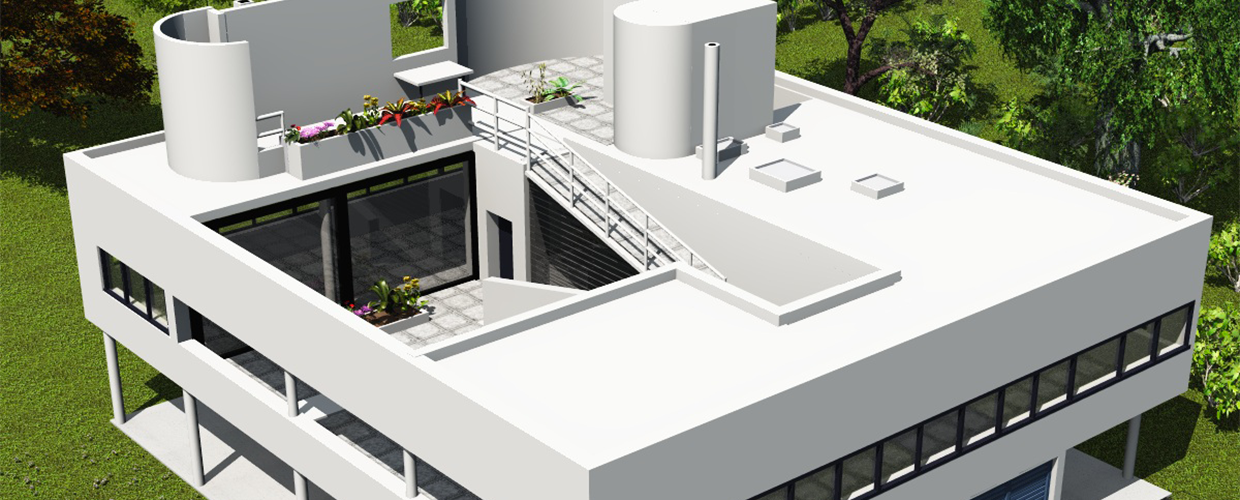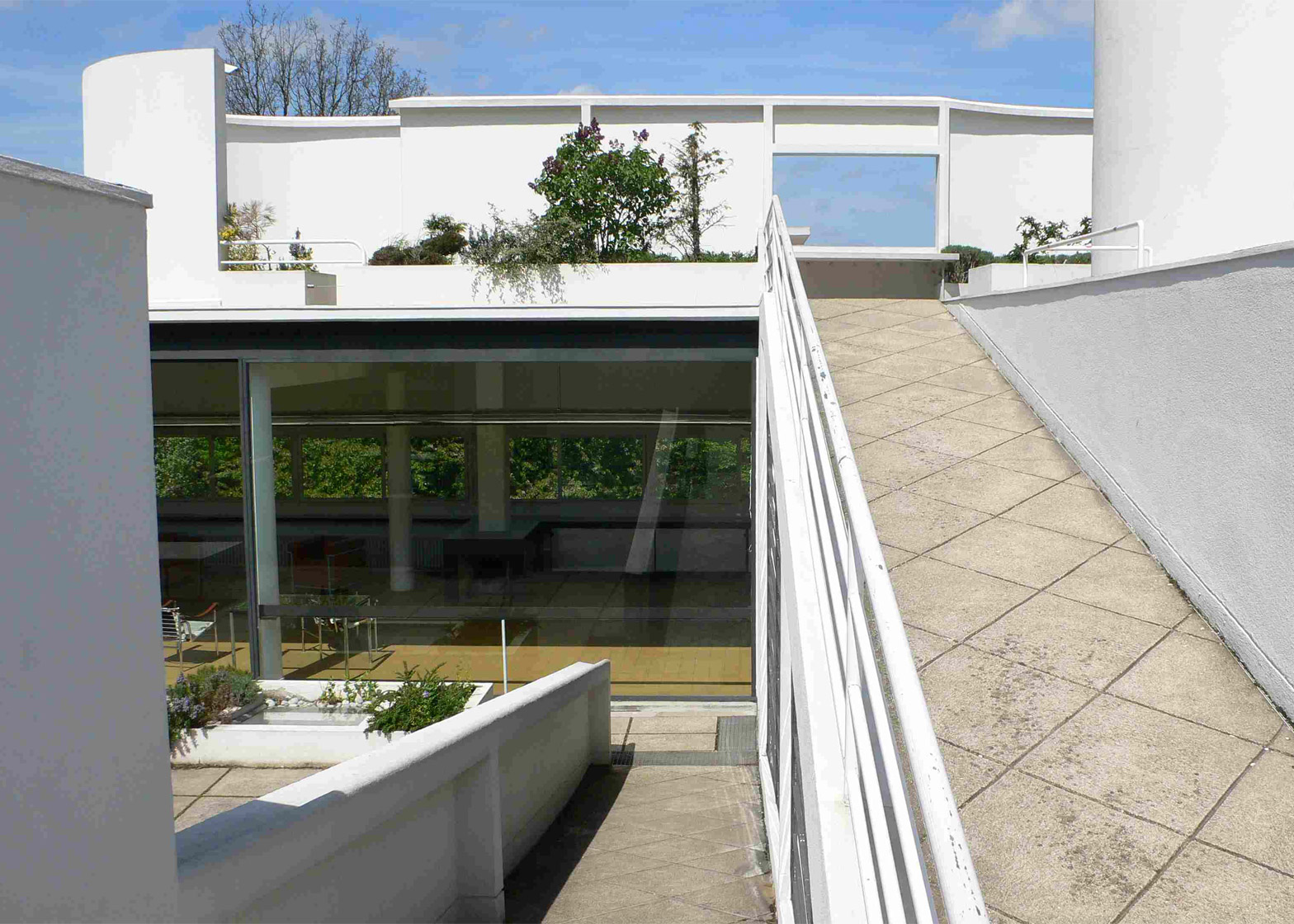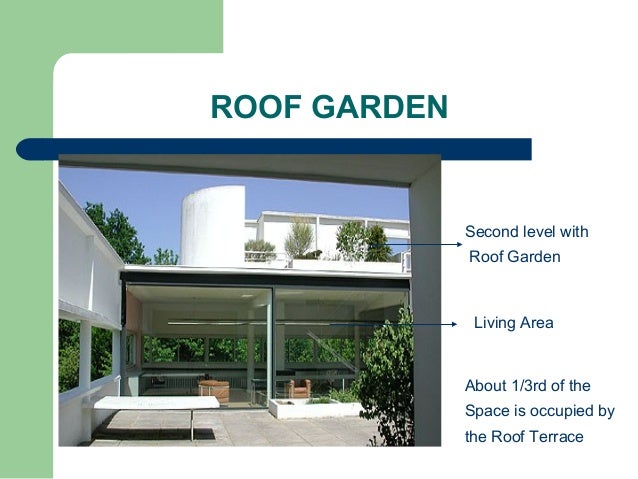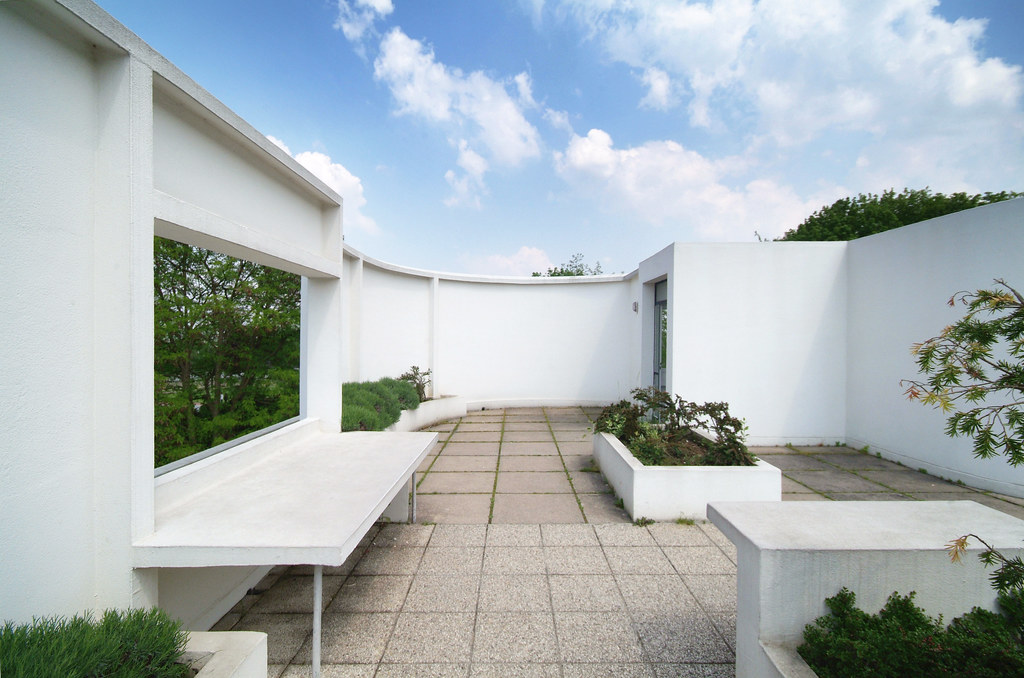In le corbusier s 5 points of architecture he advocates the inclusion of flat roofs hosting roof gardens providing valuable outdoor space for the inhabitants of the building in order to replace.
Le corbusier roof garden importance.
Le corbusier uses a flat roof to accommodate the garden terrace.
One might have hoped that le corbusier s characterization of this concrete wasteland as a garden would have occasioned derision.
A ramp rising from ground level to the third floor roof terrace allows for a promenade architecturale through the structure.
The idea behind it was to have a cheap method of construction that did not require skilled labour thus allowing for a means to mass produce housing.
6 the name referring to the latin domus or house and the board game dominoes as the style of pilotis reflected the game tiles.
The creation of a vegetal rooftop also allowed for increased views over the site.
The white tubular railing recalls the industrial ocean liner aesthetic that le corbusier much admired.
Figures 2 and 3 again emphasize the free floor plan and the rooftop garden.
The only decoration was a choice of interior colors that le corbusier gave to residents.
Within le corbusier research the roof garden was a fundamental mean of bringing nature to houses.
The roof garden is especially useful in cities with high population density and a small number of parks.
Instead pictures of it are reproduced as evidence of his.
The only mildly decorative features of the building were the ventilator shafts on the roof which le corbusier made to look like the smokestacks of an ocean.
The design principles include the following five points by le corbusier.
While the culmination of these ideals is best exemplified by the architect s own villa savoye each of these designs offers a critical.
As a means of bringing nature into the home le corbusier utilized the flat roof for a domestic garden.
The garden in the air is the modern recipe for ventilation le corbusier declared.
Easily accessible it is protected from harsh sunlight and rain and its dry paving prevents rheumatism.
A reflection of the critical principles set forth in le corbusier s manifesto for the five points of a new architecture can be seen in the works below.
In the course of his work as an architect le corbusier developed a series of architectural principles which he used as the basis of his designs.
Thus nature directly enters the residential zone without disturbing the structure and its forms.
Pilotis pillars roof garden open floor plan long windows and open facades.
Le corbusier experimented with a variety of spatial conditions for the roof garden.
It meant to a city the recovery of all the built up area.
Hygienic it transformed the usually inert apartment building into a breathing sponge that integrated air and greenery within its concrete structure.
Basically le corbusier called for a radical.
It could be an elevated space with vegetation within the heart of the building a terraced garden external to the building as well as a solarium at the top.
Le corbusier wanted no other kind of roof henceforth to be built anywhere and wrote passionately denouncing all other primitive kinds of roof.
Le corbusier pioneered the residential architectural style known as dom ino.









